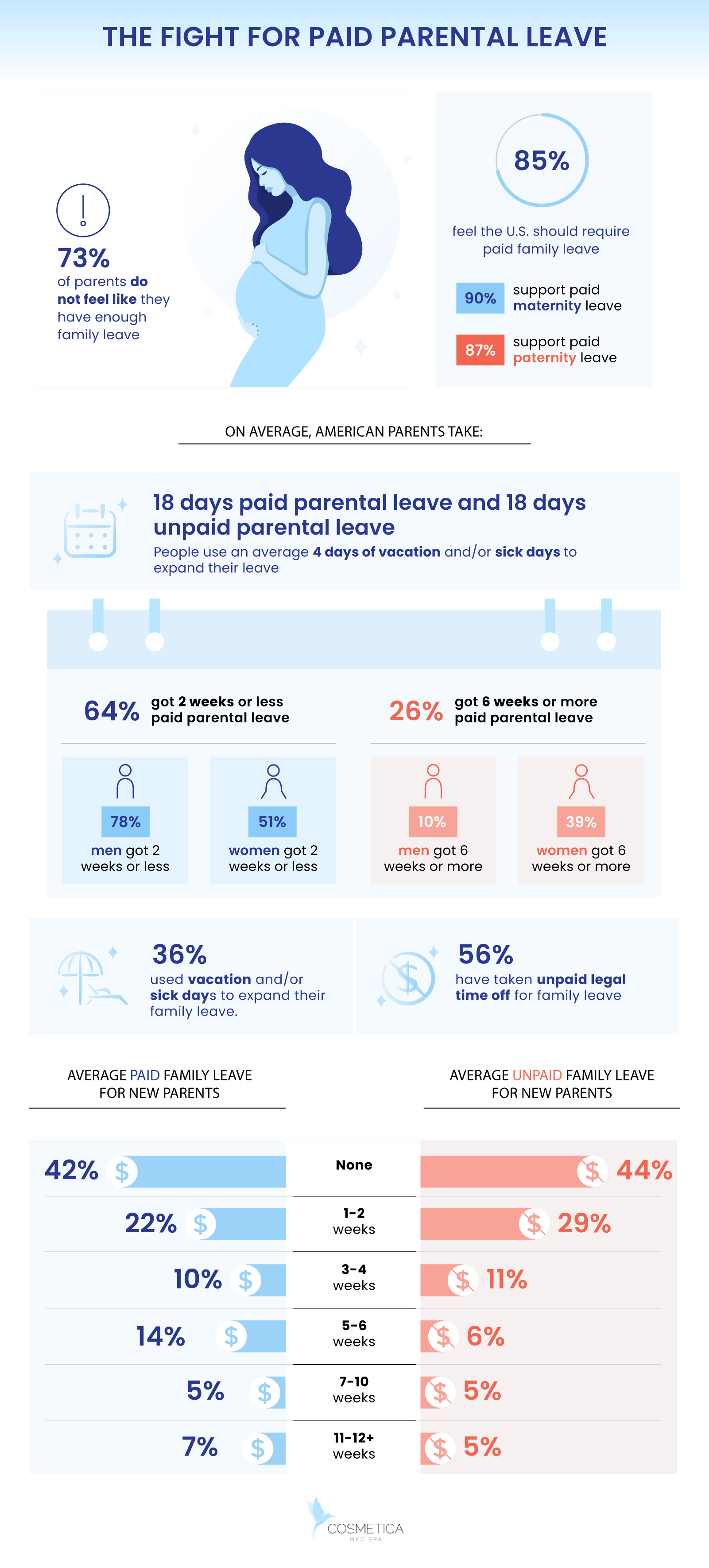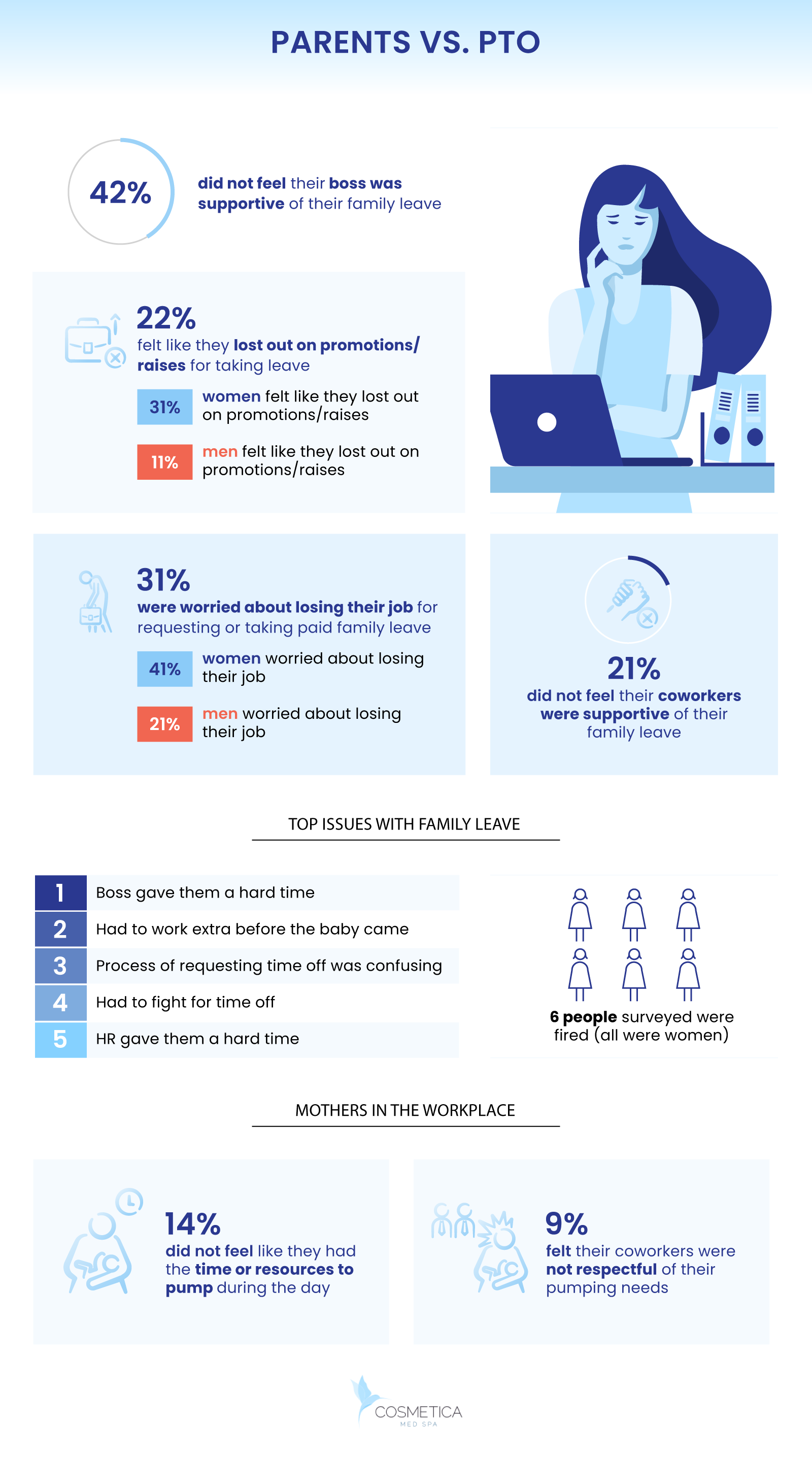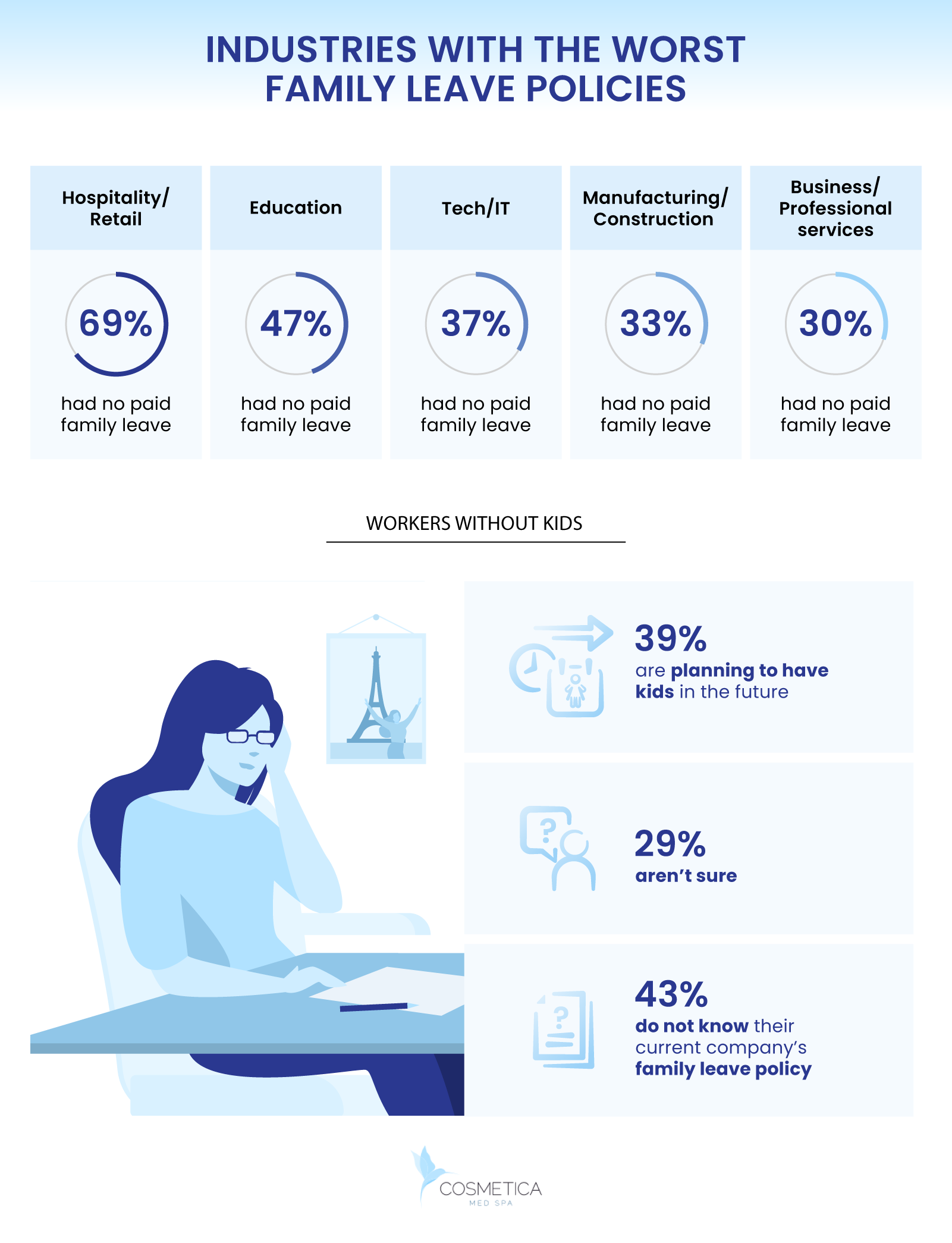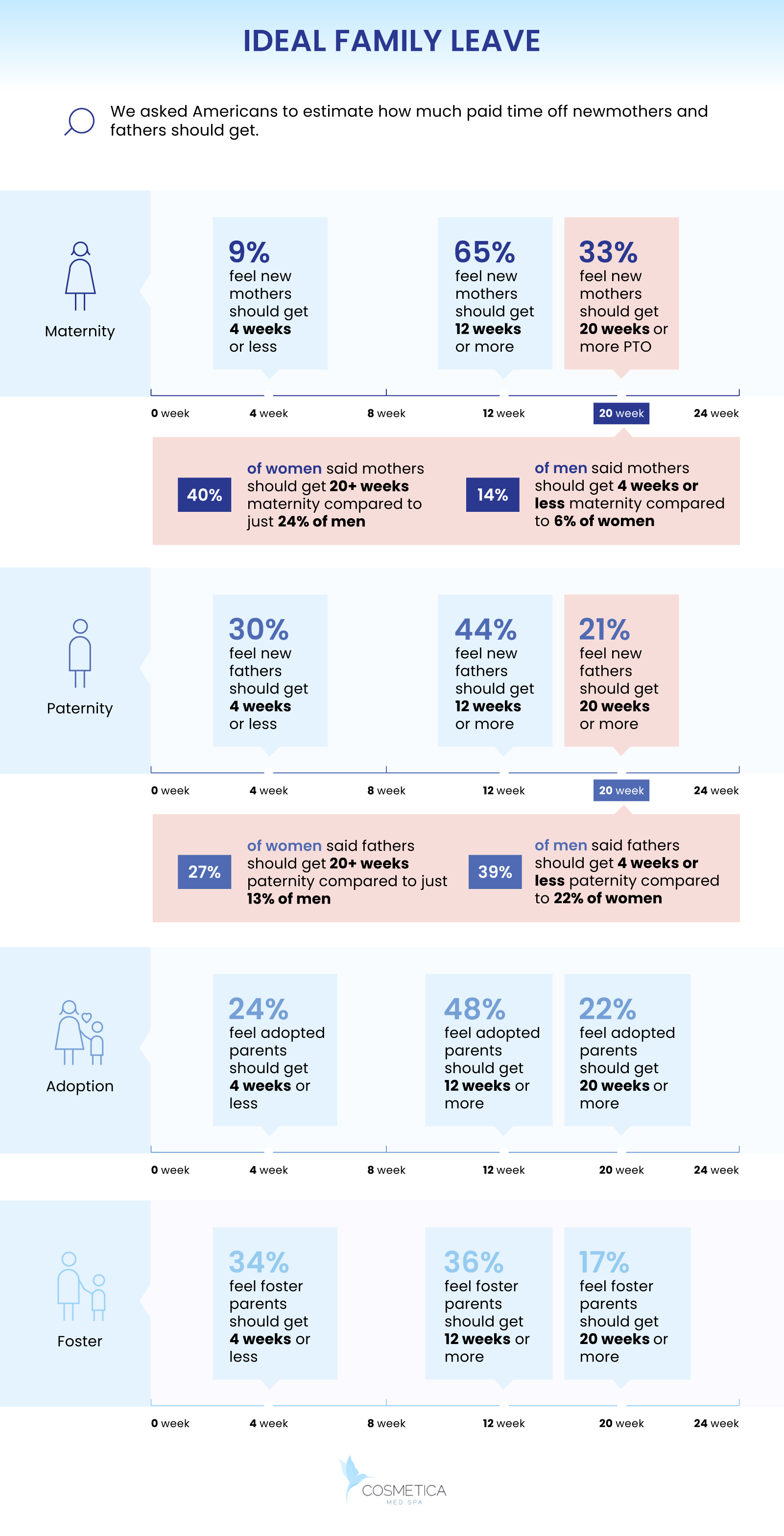The Push for Parental Leave | Fighting for Family Time | Family Leave Policies by Industry | Ideal Paid Parental Leave | Methodology | Fair Use
Becoming a parent is stressful enough on its own with the lack of sleep and constant care needed for a newborn. But many parents are struggling to enjoy this major life event because of factors outside their home: their jobs. The U.S. is one of only a half-dozen countries in the world that does not require paid family leave for employees.
In a new survey of more than 1,000 Americans, we found 85% support paid parental leave and think the U.S. should require it. It would be a big first step in helping change the way employers handle growing families and a better work-life balance.


The Push for Paid Parental Leave
More than 4 in 5 (85%) Americans think the U.S. should require paid family leave. A whopping 90% feel the government should require paid maternity leave, and 87% are in favor of paid paternity leave.
The U.S. is the wealthiest country in the world that does not require paid parental leave. The only other countries that do not require it are mainly small island nations in the Pacific Ocean and Papua New Guinea. Along with already having better vacation policies, European nations all have paid parental leave policies. The best is in Estonia, where parents get as much as 86 weeks of paid leave.
In America, 73% of parents do not feel like they have enough family leave. On average, American parents get almost 4 weeks (18 days) of paid family leave and 18 days of unpaid family leave.
Many people tap into their vacation or sick days to expand their leave. Of those surveyed, more than 1 in 3 (36%) ended up using vacation and/or sick days to expand their leave. New parents used an average of four extra days (nearly an extra work week!).
Overall, 64% of Americans reported getting two weeks of PTO or less for family leave. That includes more than half (51%) of women. 42% of people surveyed said they got no time off work at all. More than half (56%) ended up taking unpaid time off to bond with their new family.
Fighting for Family Time


While preparing for their growing family, many new parents are also dealing with confusing company policies and the stress of unsupportive bosses and coworkers. More than 2 in 5 (42%) did not feel their boss was supportive of their family leave, and 21% felt the same way about their coworkers.
Nearly 1 in 4 (22%) felt like they lost out on promotions or raises for taking leave. That number was much higher among women (31%) than men (11%). Nearly 1 in 3 (31%) were also worried about losing their job for requesting or taking paid family leave. Despite legal pregnancy discrimination protections, that was a major concern for 41% of women and 21% men. Some new mothers were right to be worried, as 6 women surveyed said they were fired for trying to take family leave.
When mothers returned to the workplace, the struggle wasn’t over. Nearly 15% did not feel like they had the time or resources to pump during the day, and almost 1 in 10 (9%) felt their coworkers were not respectful of their pumping needs.
Family Leave Policies by Industry


As for workers who don’t have kids yet, 39% are planning to have kids in the future and nearly 1 in 3 (29%) aren’t sure. Whether they’re planning to have kids or not, 43% have no idea what their current company’s family leave policy is like.
Our survey found the industry with the worst family leave policy was the hospitality/retail industry. Nearly 70% of people in that industry said they had no paid family leave. That was followed by the education industry where almost half (47%) reported no paid parental leave and the IT/tech industry where more than 1 out of 3 (37%) don’t get PTO for family leave.
Ideal Paid Parental Leave


If Americans got to choose, about 1 in 3 would give parents 20 weeks off or more for maternity leave (33%). Around 1 in 5 would give 20 weeks off or more for paternity (21%), adoption (22%), or fostering (17%).
We found that women were more supportive of paid leave policies than men. 40% of women believe that mothers should get 20+ weeks maternity compared to just 24% of men. It was the same with paternity, 27% of women felt fathers should get 20+ weeks of paternity compared to just 13% of men.
Most people surveyed felt 12 weeks should be the minimum leave policy for new parents. Only 1 in 10 (9%) felt that new mothers should get 4 weeks or less (14% of men chose that compared to 6% of women), but 30% did believe new fathers should only get 4 weeks or less time. Again, 39% of men chose that compared to just 22% of women.
Parents need time to bond with their children, and these are major life events that are so precious. Americans deserve paid time off to put toward the next generation and toward their own self-care after such a life-changing moment!
Methodology
In July 2022, we surveyed 1,057 people about work and family leave. Survey respondents ranged in age from 18 to 82 with an average age of 36. 49% were women, 48% men, 2% nonbinary, and 1% transgender. 41% have kids and 59% do not. 12% of respondents work in hospitality/retail, 11% in education, 12% in tech/IT, 10% in manufacturing/construction, 13% in business/professional services, 9% in health, 5% in arts/entertainment. Others worked in industries such as science, aerospace, communication, or were unemployed.
For media inquiries, please contact media@digitalthirdcoast.net.
Fair Use
When using this data and research, please attribute by linking to this study and citing Cosmetica Med Spa
